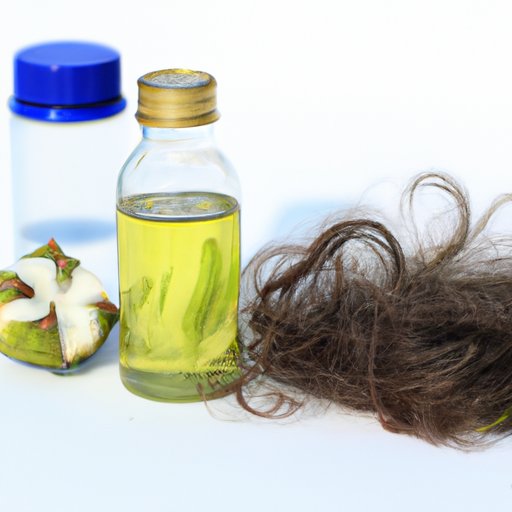
Introduction
If you have ever noticed white flakes falling from your scalp and onto your clothes, you are not alone. Dandruff is a common problem affecting many people of all ages. Not only can it be uncomfortable and itchy, but it can also be embarrassing. This article aims to provide tips and advice on how to treat and prevent dandruff, so you can feel confident and comfortable in your own skin.
Natural Remedies
Many people prefer natural remedies when it comes to treating dandruff. Here are some popular natural remedies you can try:
Tea Tree Oil
Tea tree oil has antifungal and antibacterial properties that can help reduce the yeast responsible for dandruff. Mix a few drops of tea tree oil with coconut or olive oil, then massage into your scalp. Leave on for 20-30 minutes before rinsing with cool water. Be careful not to use too much tea tree oil as it can be irritating to the scalp.
Aloe Vera
Aloe vera has a cooling effect that can help soothe an itchy, irritated scalp. Apply fresh aloe vera gel directly to your scalp, leave on for 30 minutes, then rinse with cool water.
Apple Cider Vinegar
Apple cider vinegar has strong anti-inflammatory properties that can help ease dandruff. Dilute 1 part apple cider vinegar with 2 parts water, then apply to your scalp and massage. Leave on for 15-20 minutes before rinsing with cool water.
The Science Behind Dandruff
Understanding the underlying causes of dandruff can help you find the right treatment. Dandruff is caused by an overgrowth of yeast on the scalp, which can cause inflammation and irritation. Excess sebum production can also contribute to dandruff.
There are two types of dandruff – dry and oily. Dry dandruff occurs when the scalp becomes too dry and flaky, while oily dandruff occurs when the scalp produces too much sebum. Treatment options can vary depending on the type of dandruff.
If natural remedies do not work, you may need to consider medical or prescription options. Antifungal shampoos containing salicylic acid or ketoconazole can help target the underlying yeast issue. Medicated creams or ointments may also be prescribed in severe cases of dandruff.
Common Misconceptions
There are many misconceptions about dandruff that need to be addressed, such as the idea that only people with dry scalps get dandruff. In reality, both dry and oily scalps can experience dandruff. It is important to identify and differentiate dandruff from other scalp issues like psoriasis or eczema, which require different treatments.
Natural vs. Medicated Options
While natural remedies can be effective for some, they may not work for everyone. In some cases, medical or prescription options may be necessary. It is important to compare and contrast natural remedies with medicated treatments, and consider factors like effectiveness, cost, and potential side effects.
If you are concerned about using medicated options, talk to your doctor or dermatologist. They can recommend the best treatment options for you and address any concerns you may have.
Preventing Dandruff
Preventing dandruff can be as simple as maintaining a healthy diet, using gentle or sulfate-free shampoos, and avoiding hats or hair accessories that trap moisture. Regular hair washing and scalp care are also essential for preventing dandruff.
Conclusion
Dandruff is a common problem that can be uncomfortable and embarrassing, but there are many treatment options available. Whether you prefer natural remedies or medicated treatments, it is important to understand the underlying causes of dandruff and take steps to prevent it. With the tips and advice provided in this article, you can feel confident and comfortable in your own skin.





